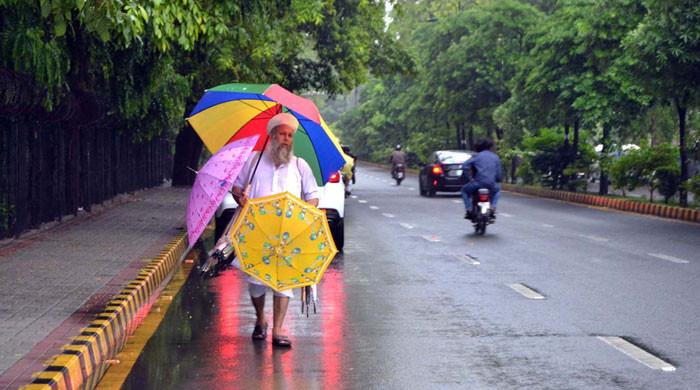Mercury likely to jump by multiple degrees from July 15
KARACHI: After receiving some respite from the scorching heat due to light rain earlier this week, Karachiites are once again expected to witness another heat spell next week with temperature expected to increase by up to 3°C from July 15 (Monday).
The metropolis, as per weather expert Jawad Memon, is likely to experience an increase in temperature as there’s a possibility of a decrease in the speed of the sea breeze due to the formation of a low-pressure area.
The weather update comes after the city received heavy rain on Tuesday in several areas of the city followed by light showers. However, despite the rain, the residents have not yet experienced significant relief from the heat.
Mercury likely to jump by multiple degrees from July 15 Memon said that a rain system might affect the country’s southern parts including Karachi between July 16 and 18.
Earlier, the Pakistan Meteorological Department (PMD) forecast heavy rains in the metropolis after July 20.
NDMA warning
Several parts of the country are currently witnessing monsoon rains with Lahore receiving 315 millimetres of downpour a day earlier which broke a 30-year-old record.
A day earlier, the National Disaster Management Authority’s (NDMA) National Emergencies Operation Centre said that it anticipates an increase in flows in the River Ravi nullahs (Deg, Basanter and Bein) and River Chenab catchments in the next 48 hours.
Consequently, people living in low-lying areas may be affected, said the NDMA body.
The downpour may disrupt transportation and damage buildings and infrastructure, said the NDMA statement, adding crops and livestock also may be affected.
Furthermore, low-to-medium-level flows are expected in the hill torrents of DG Khan division till July 15. Heavy rainfall may increase inflows in the hill torrents of DG Khan and Rajanpur which may affect people, crops, infrastructure and livestock in low-lying areas.
The NDMA has advised PDMA and local administrations to closely monitor the situation and take appropriate measures to safeguard the at-risk population.
Meantime, the disaster-tackling body advised people to take preparatory actions including maintaining household drainage systems to prevent waterlogging and report any blocked drains or potential hazards to local authorities promptly.
“People are advised to take caution while travelling to landslide-prone areas. Communities at risk are also advised to follow instructions from local authorities,” the NDMA said.

